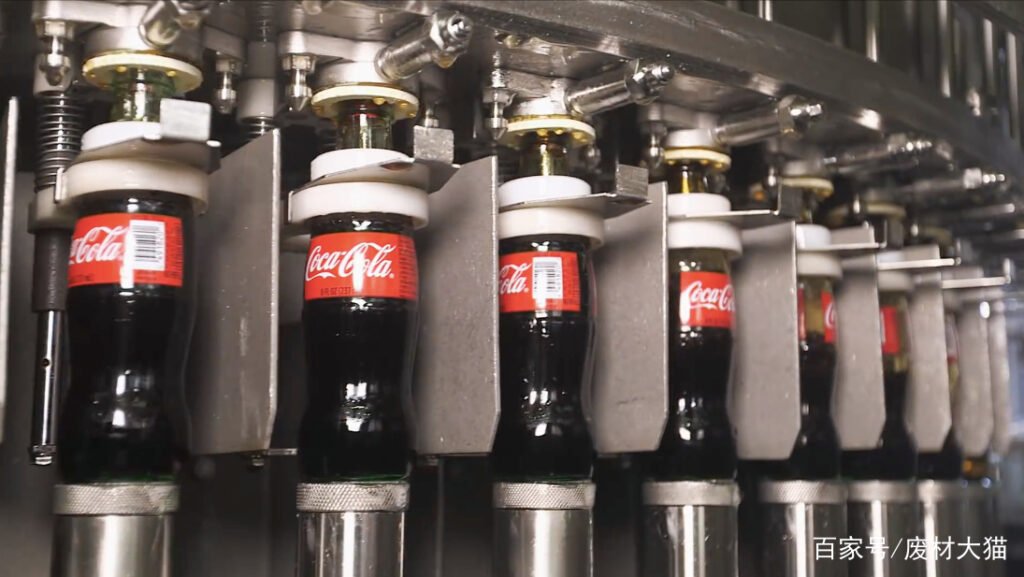
Cola production is a complex process involving multiple heating and cooling steps, such as syrup preparation, sterilization, cleaning and concentration. The waste heat generated in these steps is often not fully utilized, resulting in energy waste. High-temperature heat pumps can improve energy efficiency, reduce operating costs, and reduce carbon emissions by recovering low-grade waste heat (such as washing water and sterilization steam condensation heat) and heating it up and reusing it in the production process.
Main heat-using links in cola production
- Syrup preparation
- Process: Heat and dissolve sugar and water to make syrup.
- Temperature requirement: Generally 60~80°C.
- Sterilization
- Process: High-temperature sterilization of syrup or raw materials to ensure product safety.
- Temperature requirement: Usually 90~120°C is required.
- Carbonation
- Process: Add carbon dioxide after cooling the beverage.
- Temperature requirement: The syrup or beverage needs to be cooled to 2~4°C.
- Source of waste heat: waste heat (about 30~50°C) is generated during the cooling process.
- Cleaning and disinfection
- Process: Regularly clean and disinfect production equipment and pipelines.
- Temperature requirements: cleaning water and disinfection water usually require 60~90°C.
- Waste heat discharge
- Source: waste heat from steam condensation, syrup cooling, equipment cleaning, etc., the temperature is generally 30~70°C.
Application scenarios of high-temperature heat pumps
- Waste heat recovery from syrup preparation
The cooling process after syrup heating releases heat at a temperature of 50~70°C. High-temperature heat pumps can recover this waste heat and raise it to 80°C, which can be used again in syrup preparation or cleaning.
- Utilization of sterilization condensation heat
The steam condensation heat discharged from the sterilization equipment is about 60~80°C, and the High-temperature heat pump can raise its temperature to 100~120°C for sterilization or cleaning again.
- Heat recovery of cleaning water
A large amount of wastewater (temperature 40~60°C) will be generated during the equipment cleaning process. High-temperature heat pumps can recover the heat energy of these wastewaters and raise the temperature of the cleaning water to 70~90°C.
- Comprehensive thermal energy management
High-temperature heat pumps can integrate the waste heat resources of various links in the cola production process to form a centralized thermal energy management system for sterilization, cleaning, syrup preparation and other links to maximize energy utilization efficiency.
Economic and environmental benefits
- Energy saving and consumption reduction
- High-temperature heat pumps use waste heat instead of boilers or electric heating to reduce external energy demand, and the operating efficiency (COP) is usually 3~5.
- Reduced operating costs
- Reducing the use of coal, gas or electricity by recycling waste heat can significantly reduce production costs.
- Reduced carbon emissions
- Reduce the use of fossil fuels, reduce carbon dioxide and other pollutant emissions, and help companies achieve carbon peak and carbon neutrality goals.
- Stable production
- The heat provided by high-temperature heat pumps is stable and reliable, which can meet the strict temperature control requirements of all links in cola production and improve product quality.
Case analysis
Background data:
- A cola factory produces 500 tons per day, and the sterilization link requires 1,200 kW of heat.
- The sterilization condensation waste heat temperature is 70°C, and 800 kW of waste heat is generated per hour.
- Use high-temperature heat pumps to replace part of the boiler heating.
Energy consumption calculation:
- Traditional boiler method:
- Sterilization requires heat 1200kw
- Boiler efficiency 85%, actual energy demand 1400kw;
- High-temperature heat pump method:
- Recycle waste heat, and the heat pump COP is assumed to be 4.
- Power consumption 200kw
Cost comparison:
- Coal-fired boiler cost (coal price 0.8 yuan/kWh): 1130
- High-temperature heat pump cost (electricity price 1 yuan/kWh): 200
Energy saving benefits:
Hourly cost saving is, daily operation 20 hours, annual operation 300 days, annual cost saving is: 5 million yuan
Carbon emission reduction:
Reduced coal consumption 1,212 kW, calculated according to the coal carbon emission coefficient 0.7 kg CO₂/kWh, annual emission reduction is: 500,000 tons
Conclusion
The application of high-temperature heat pump in cola production, by recycling waste heat from syrup cooling, sterilization condensation and other links, provides the required heat for the process, which not only significantly reduces energy costs, but also greatly reduces carbon emissions. For beverage companies pursuing green production, high-temperature heat pump is an efficient and environmentally friendly thermal energy solution, which can also improve product quality and optimize production processes.


